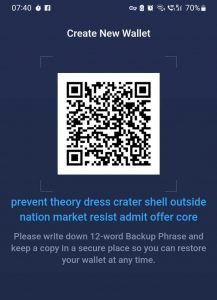Buying / Selling Property With Bitcoin

Blockchain technology was once dismissed as a scam or ponzi scheme. Today, it powers systems used by governments, banks, corporations, and millions of people worldwide. You’ll find it in healthcare, energy, logistics, finance, entertainment, and digital identity. Central banks now test digital currencies like the Digital Dollar and Digital Euro—all built on blockchain.
Bitcoin (BTC) continues to gain traction. Regulators in the United States, Canada, Australia, Germany, and Hong Kong approved over a dozen BTC Exchange Traded Funds (ETFs). Investors and developers widely accept blockchain and rely on its proven reliability. BTC now functions as a store of value and, in some cases, a medium of exchange.
Real estate clients increasingly offer BTC as part or full payment for property. This trend brings challenges, as regulations around crypto transfers remain unclear. RE/MAX We Sell Paradise has handled several BTC transactions. This article outlines what we’ve learned, including the process and key considerations for buyers and sellers.
SIMPLE DEFINITIONS
We’ll keep this article simple and avoid diving into complex details. You can adjust the process using decentralized exchanges, hardware BTC wallets, escrow services, or third-party financial providers instead of banks. These options boost security, but they involve technical steps beyond this article’s scope.
Here, we’ll walk through a basic, streamlined process. We’ll skip the advanced tools and focus on clear, practical definitions to help you get started with BTC in real estate.
- BITCOIN (BTC) – Bitcoin emerged in 2008 as the first decentralized cryptocurrency, allowing direct exchange between users without banks or intermediaries. Since its launch, developers have introduced tens of thousands of cryptocurrencies, each with varying levels of adoption and utility. Despite the competition, Bitcoin holds its position as the most trusted and valuable digital asset. As of May 7, 2024, it commands a market cap of $1.2 trillion and sees daily trading volumes exceeding $100 billion.
- BLOCKCHAIN – A blockchain stores cryptocurrency transactions in grouped units called blocks, linking them chronologically to form a permanent, tamper-proof ledger. Each block contains verified data, and the chain grows as new transactions occur. Bitcoin uses this system, along with many other digital currencies that rely on blockchain technology for transparency and security.
- BTC EXCHANGE – A centralized exchange lets users trade cryptocurrencies for fiat or other digital assets, while also handling deposits and withdrawals through various methods. These platforms manage transactions, offer liquidity, and simplify access to the crypto market. Popular examples include Binance, Coinbase, and KuCoin, each serving millions of users worldwide.
- BTC WALLET – A digital wallet which holds and secures encrypted information allowing a user to hold, send or receive supported cryptocurrencies.
- KYC PROCESS – A process where a BTC exchange verifies account holders to meet government rules or enforce its own security protocols. The process often involves uploading documents like a passport, driver’s license, utility bill, or bank statement. Some platforms also request face scans or photos, which they compare to submitted ID images. Verification can take time, especially when manual review is required.
- PRIVATE KEY – A private key unlocks access to a BTC wallet and typically appears as a long alphanumeric string or a set of 12 or 24 words. Whoever holds this key can control the wallet and move its funds, making security absolutely essential. Sharing the key risks theft, so users must store it safely and never reveal it to others.
- PUBLIC KEY – A public key appears as a long alphanumeric string or a QR code and serves as the address of a BTC wallet. Users can share it freely, since it only allows others to send cryptocurrency or view wallet activity through a block explorer. It does not grant access to the wallet’s funds or enable spending, making it safe to disclose.

CONSIDERATIONS
The points below offer simple summaries, not full explanations. Each topic deserves careful thought. You can reduce many risks by following best practices. Use a hardware BTC wallet. Keep your computer protected with up-to-date antivirus software. Set aside a clean, BTC-only device for transactions. Avoid browsing or downloading on that machine.
Stay alert to scams. Don’t click suspicious links. Use Two-Factor Authentication (2FA) whenever possible. These steps help secure your assets and protect your privacy.
- Creating a BTC Exchange account can be a lengthy process due to KYC (Know Your Customer) requirements. BTC exchanges often request scans of a driver’s license, passport, bank statement, or utility bill to verify identity and confirm residency. Some platforms also use apps to scan the applicant’s face and match it to submitted ID photos. This verification process may take several days or even weeks to complete. Sellers should begin registration early to ensure they’re ready to receive BTC payment when the sale closes.
- BTC Exchanges charge a transaction fee. For example, tier 1 exchange Binance charges a 0.1% fee. On a $1 million transaction, this would equal a $1,000 fee. Fees vary by BTC Exchange, transaction size, and order type. For larger sums an Over The Counter (OTC) transaction may be arranged.
- BTC Exchanges may not have sufficient liquidity to perform a large transaction without significant slippage loss. This means that there may not be enough buyers to accept a large sale of BTC, thus a portion of the sale will need to be made at a lower price, or be made in smaller sections or via a ‘limit’ order type (leading to volatility risks). Like above, this can be mitigated by using an OTC process.
- Moving money from a BTC Wallet to a BTC Exchange can take time – while BTC transactions between BTC Wallets take seconds to a few minutes, transactions to BTC Exchanges can take longer due to occasional sluggishness on the part of BTC Exchanges in accepting and recording the BTC deposit. So there is risk of BTC price volatility impacts while the asset is being transferred from a seller’s BTC Wallet to the BTC Exchange.
- Some banks are not friendly towards BTC and may show resistance in accepting a transfer from a BTC Exchange, for a number of reasons. Hopefully, with the US Securities and Exchange Commission approving BTC ETFs, this will soon start to change.
- There is a risk that hackers can steal BTC while it is in a seller’s or buyer’s BTC Wallet, in the wallet of a 3rd party facilitating the exchange, or in the seller’s BTC Exchange account – this is usually due to computer malware such as key loggers that steal the private key, steal a user’s email access or steal a user’s BTC Exchange login information, phishing site attacks, insecure storage of the private key, and many others. Blockchain security is a complicated and lengthy topic.
- BTC exchanges are not very secure. A number of respected tier-1 exchanges have experienced hacking attacks, fraud, bankruptcies, and other serious issues leading to partial or total loss of customer funds. Exchanges are vulnerable and a BTC payment deposit should be exchanged into USD and transferred to a traditional bank as soon as possible. This is a material counterparty risk.
- BTC price is volatile – daily variations in price average 4% and, a dozen or more times a year, up or down movements of 10-20% per day can be expected. As recently as 2020 BTC experienced a 40% loss in one day. The volatility is easing as the market cap rises and the asset matures, but it remains highly elevated. For reference, these are some of the recent BTC prices:

TYPICAL REAL ESTATE BTC TRANSACTION PROCESS – NOT FACILITATED BY A THIRD PARTY
Below is an abbreviated flow of events that a real estate BTC transaction could follow. As there is no standardised process yet, each separate transaction may differ in details. The outcome depends on the terms both buyer and seller agreed to during the negotiation and finalization of the transaction.
- At the time of closing the sale, the price of BTC is recorded using the current trading price on one of the tier 1 exchanges such as Binance or Coinbase. An average price across multiple exchanges can also be used.
- The agreed purchase price of the property is then converted into BTC equivalent. E.g. if the purchase price of the property is $800,000 USD and the recorded price of BTC is $65,000 per BTC, the agreed amount of BTC equivalent is 12.308 BTC.
- The buyer transfers 12.308 BTC from the buyer’s BTC Wallet to the seller’s BTC Wallet.
- The seller transfers 12.308 BTC from the seller’s BTC Wallet to a BTC Exchange.
- The seller exchanges 12.308 BTC into $ USD equivalent at the current exchange rate, which may have changed since the agreed BTC purchase price. 12.308 BTC may now be worth more that $800,000 or less than $800,000.
- The seller withdraws $ USD equivalent from the BTC Exchange into a traditional bank account. The seller may also convert the BTC into many other supported currencies – for example CAD, AUD, NZD, EUR, GBP and many others. Users can then transfer the funds from the BTC exchange directly into any of their foreign currency bank accounts using supported withdrawal methods.
REAL ESTATE BTC TRANSACTION PROCESS FACILITATED BY A THIRD PARTY
Third parties can add an element of security, comfort, confidence, and expert advice. They can also help the process proceed in an expedited fashion. The process followed would be similar to the process presented above. However, depending on procedures, a third party make take possession of the BTC to keep it in escrow.
- Third parties entering the blockchain space—especially those from traditional finance—often lack deep understanding of the technology despite rising demand. This gap creates risk for users relying on their services. Thus it may offer faulty advice or advice that puts user BTC funds at risk.
- Any third party that takes possession of the BTC also introduces counterparty risk. This risk is similar to that seen with BTC Exchanges – hacking, mismanagement, insolvency, theft.
Carefully vet any third party involved in a BTC property purchase. Review their reputation, experience, service history, insurance coverage, and staff qualifications. Investigate user feedback and confirm how long they’ve handled BTC-related transactions before trusting them with your investment.
WHAT WILL THE FUTURE HOLD?
Standardized BTC payment protocols will likely emerge soon, especially for real estate transactions. Private companies may step in to manage these deals, offering specialized services and secure platforms. Right now, BTC payments remain unfamiliar to most agents, buyers, and especially sellers. Costa Rica’s government or local real estate associations must step forward to provide clear guidelines and lead efforts toward responsible development.
This article offers a basic introduction to Bitcoin terms and real estate processes. It does not serve as a legal guide or expert reference. Anyone planning a BTC-based property deal should consult a qualified advisor and legal professional to ensure safety and compliance.
RE/MAX WE SELL PARADISE has been serving clients for over 13 years – our extensive knowledge and experience, together with a diverse staff and all the benefits of a global corporation, make us a trusted partner for all of your real estate related needs. Recently, we have facilitated Bitcoin real estate transitions. This process will get much more common as days go by.



